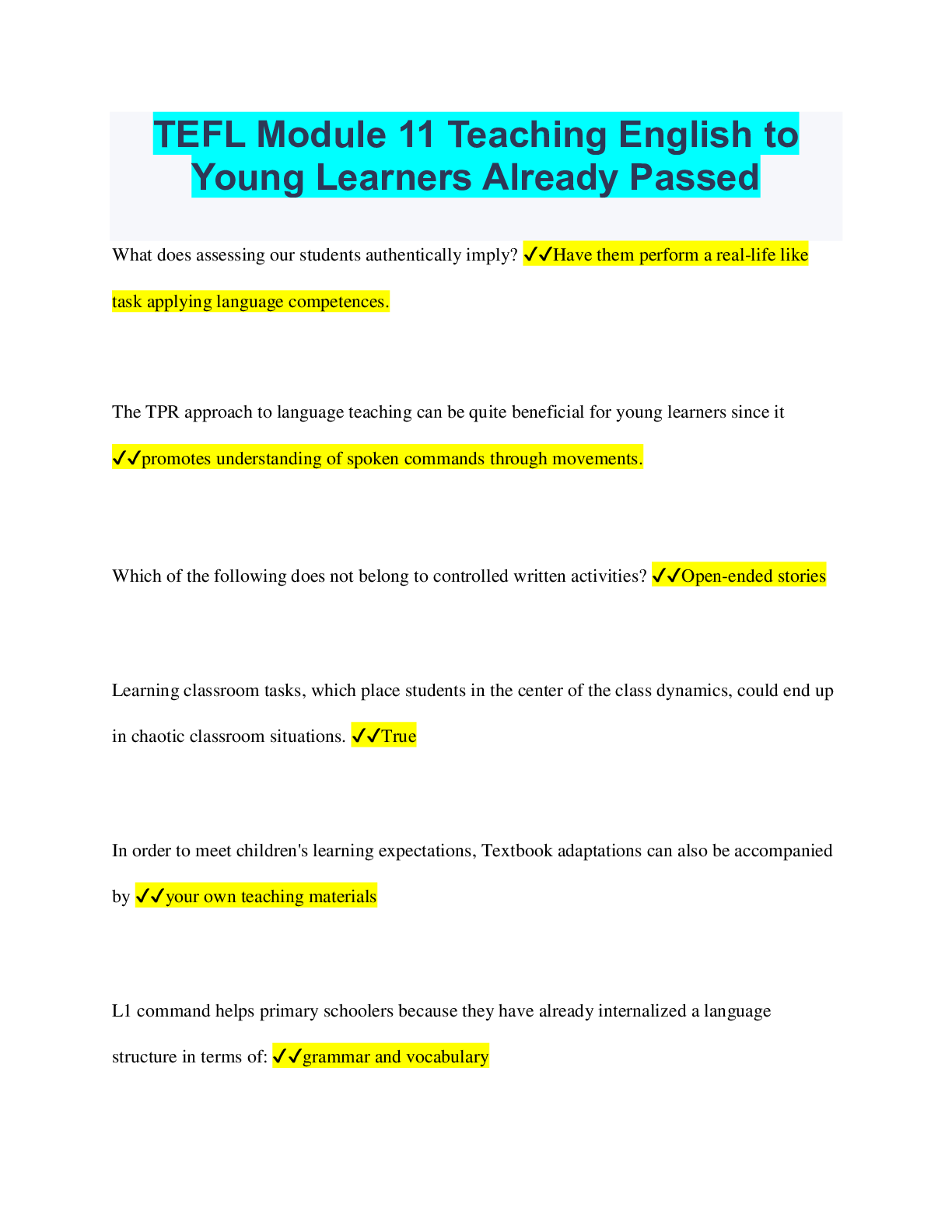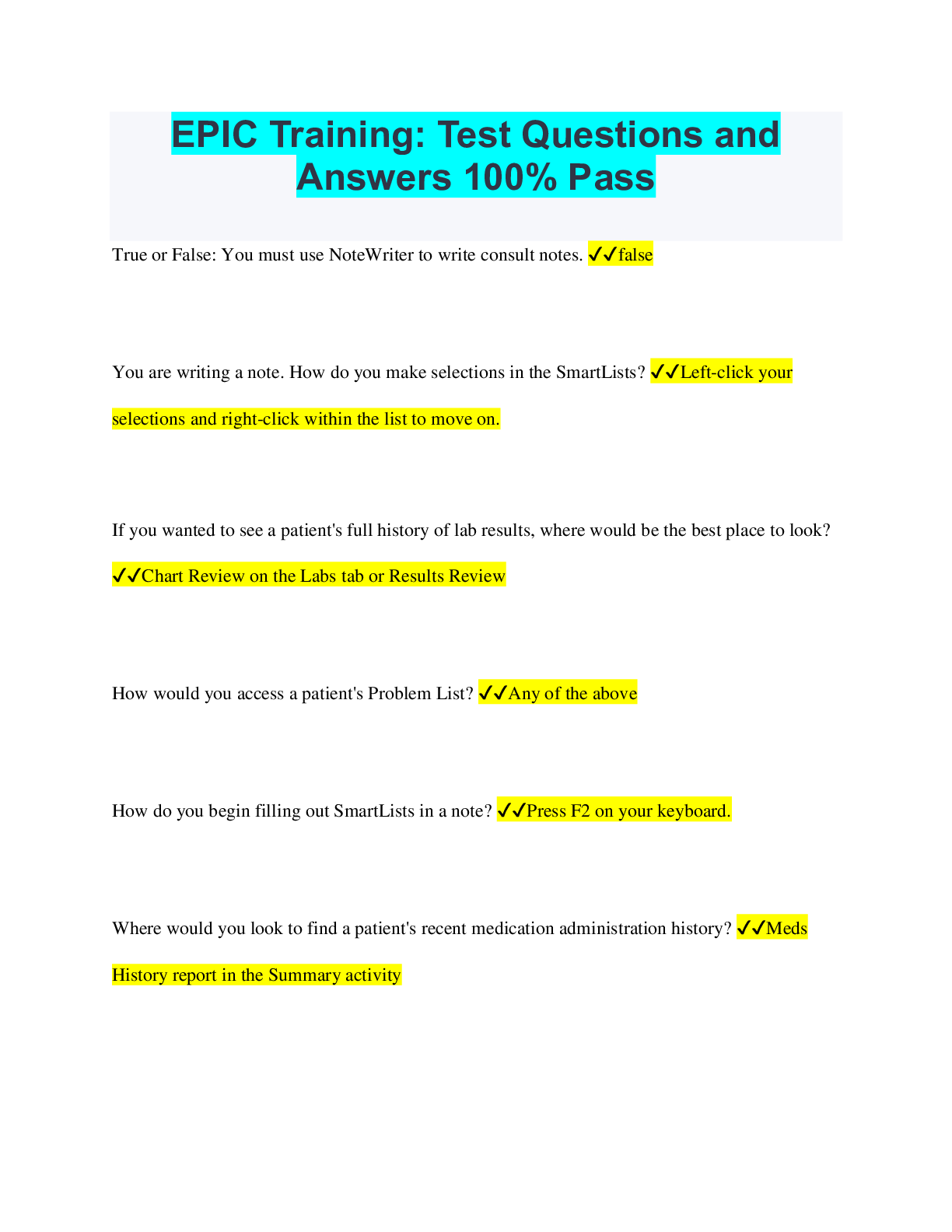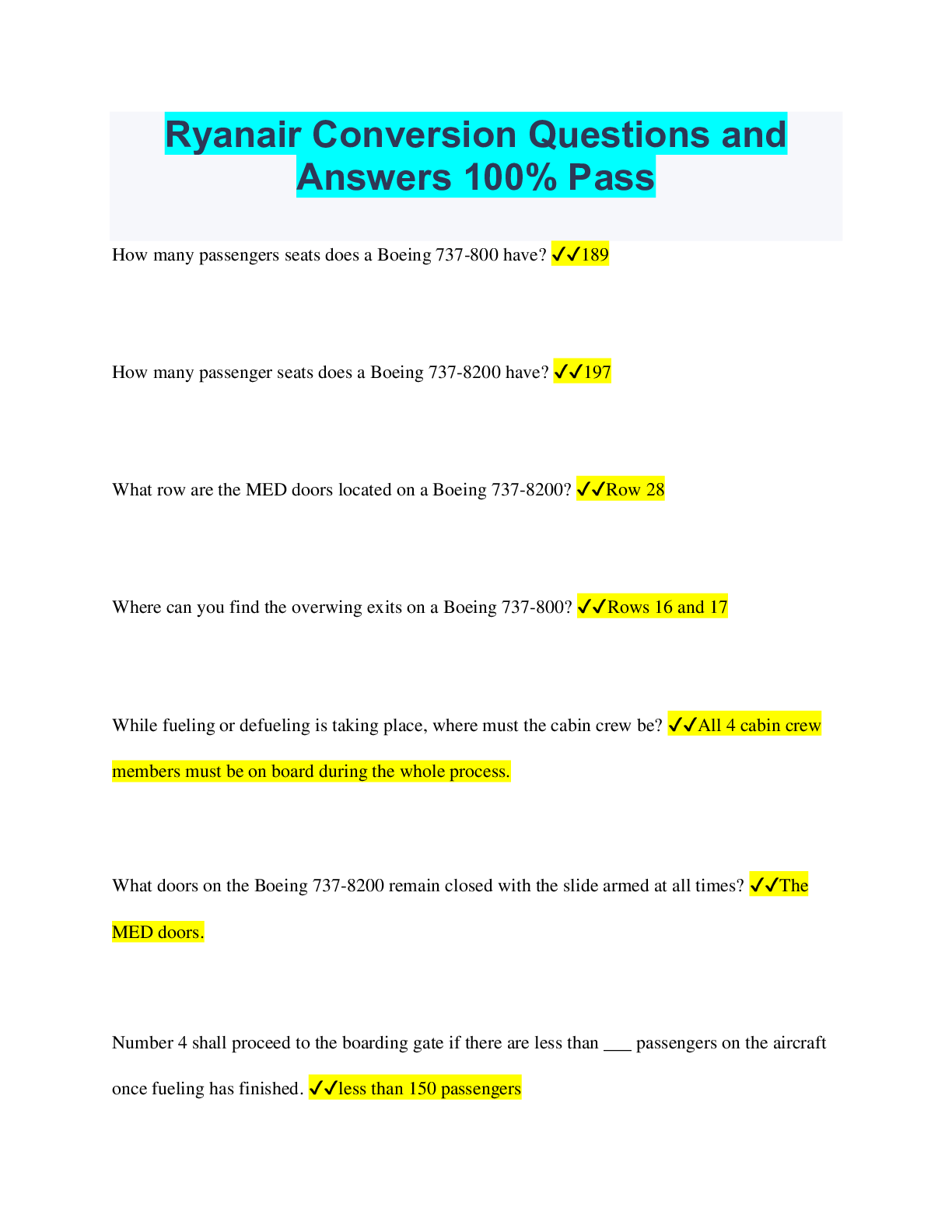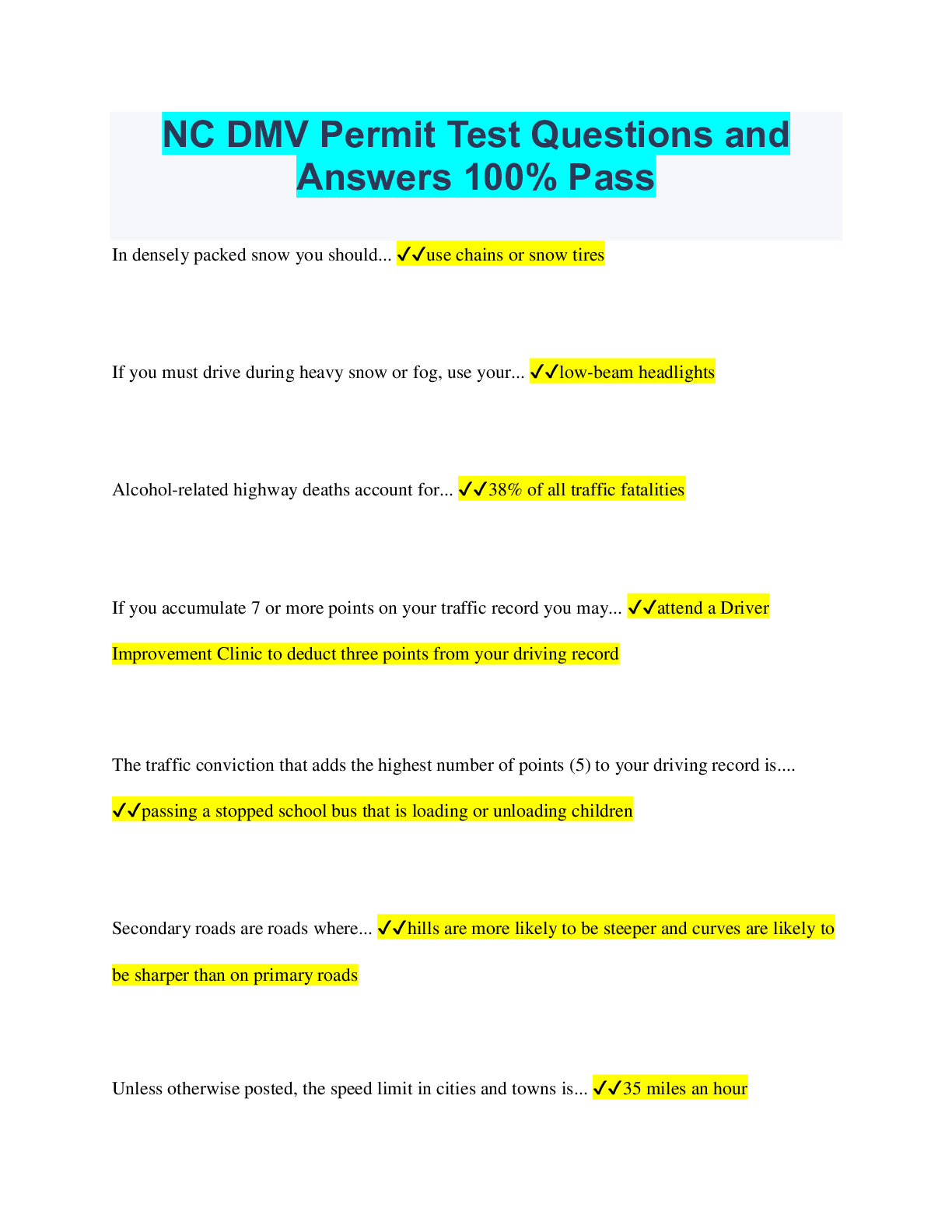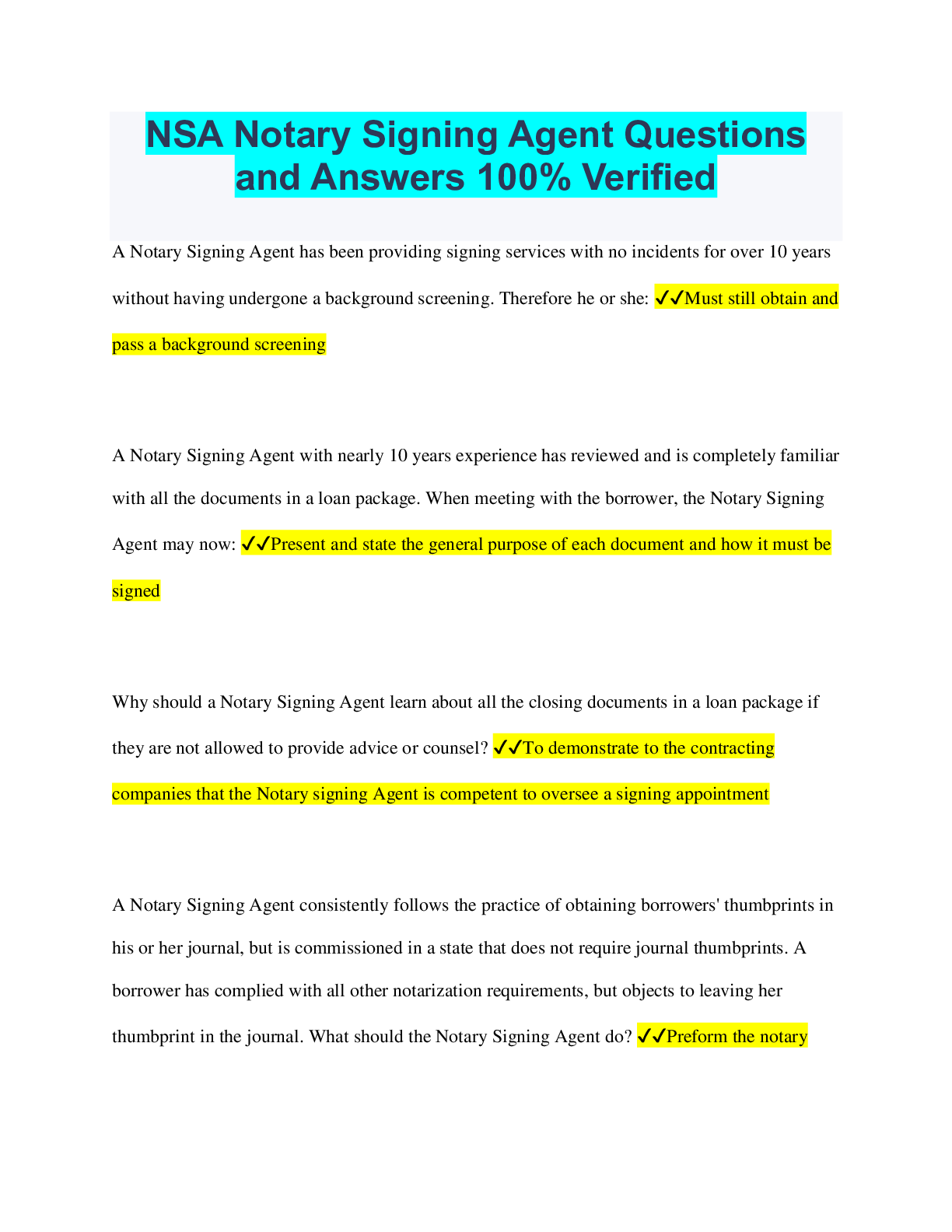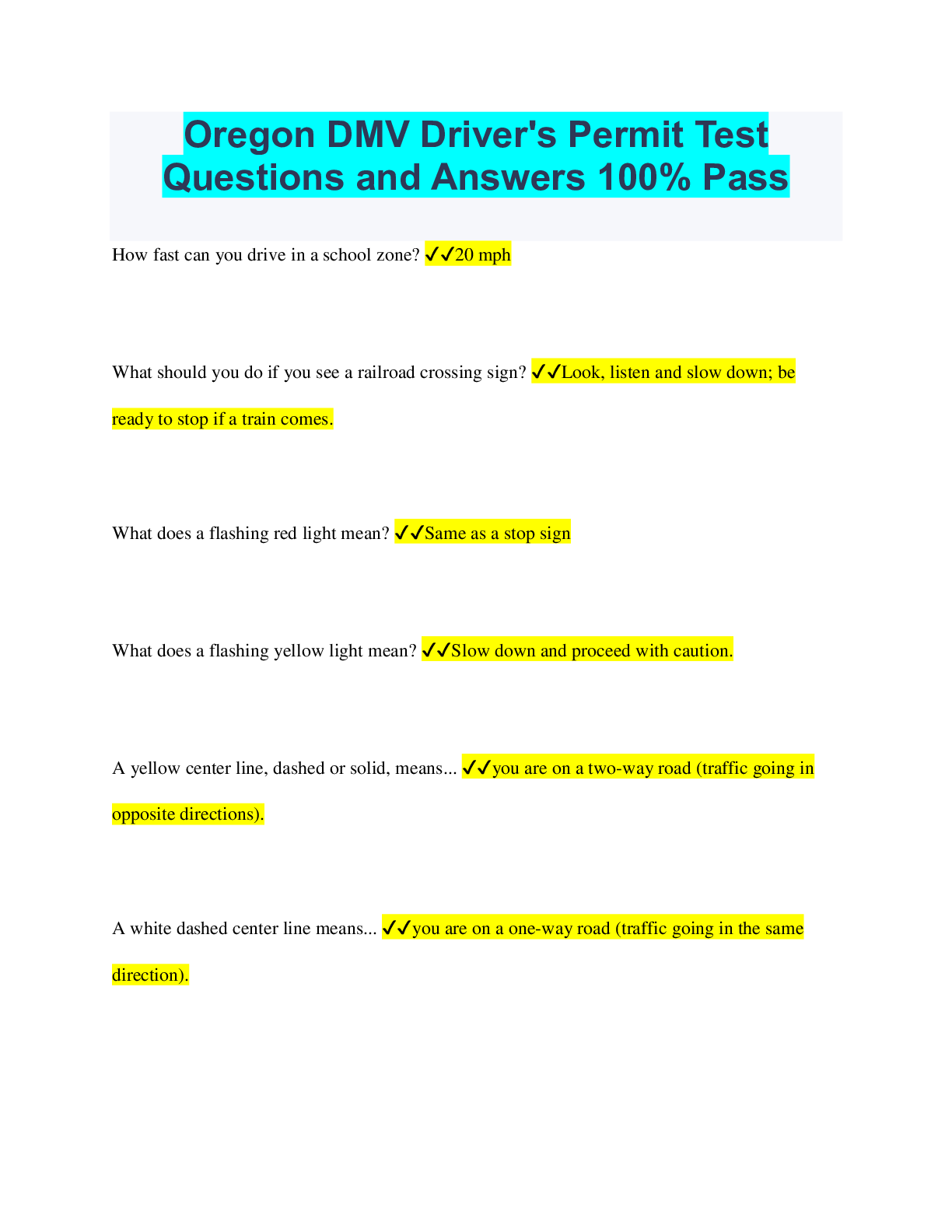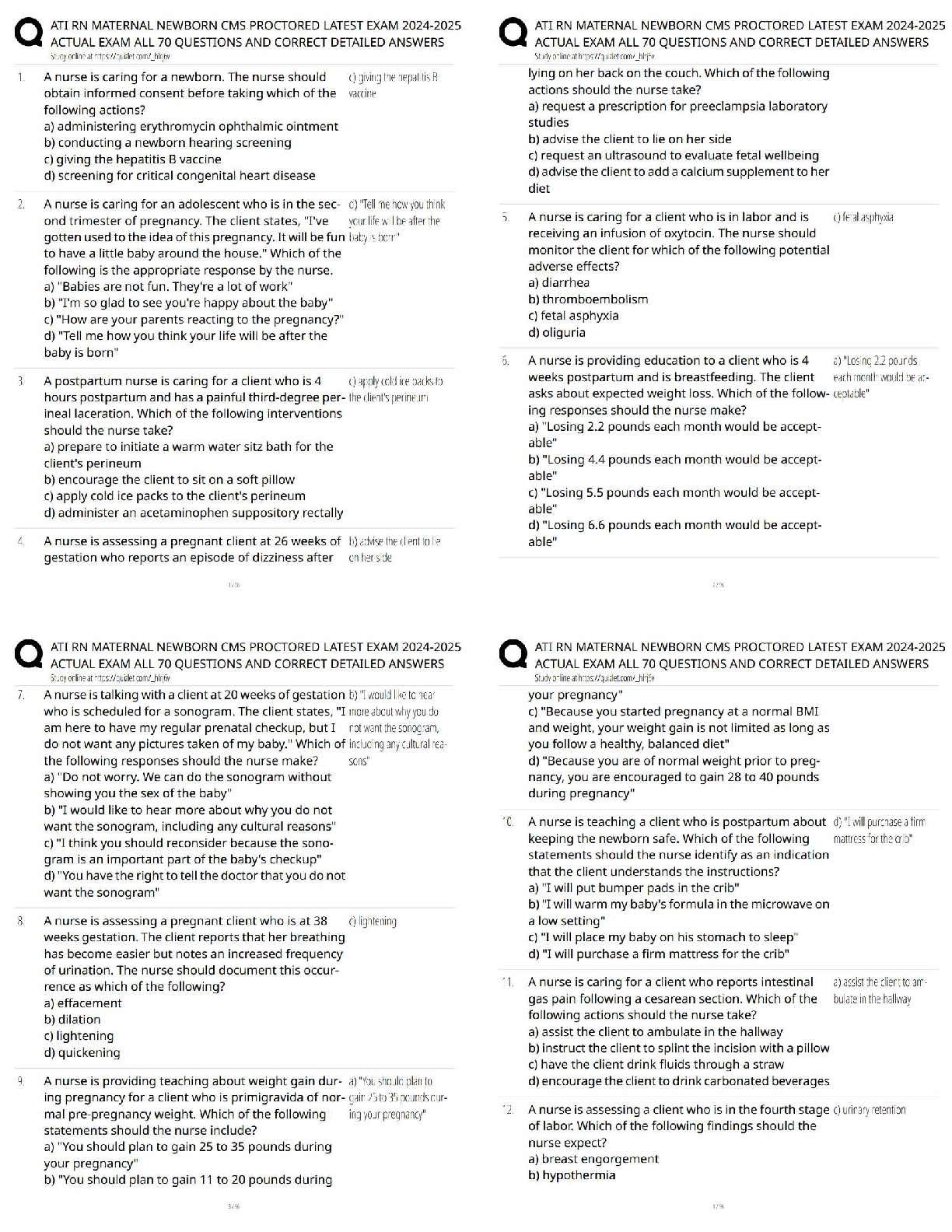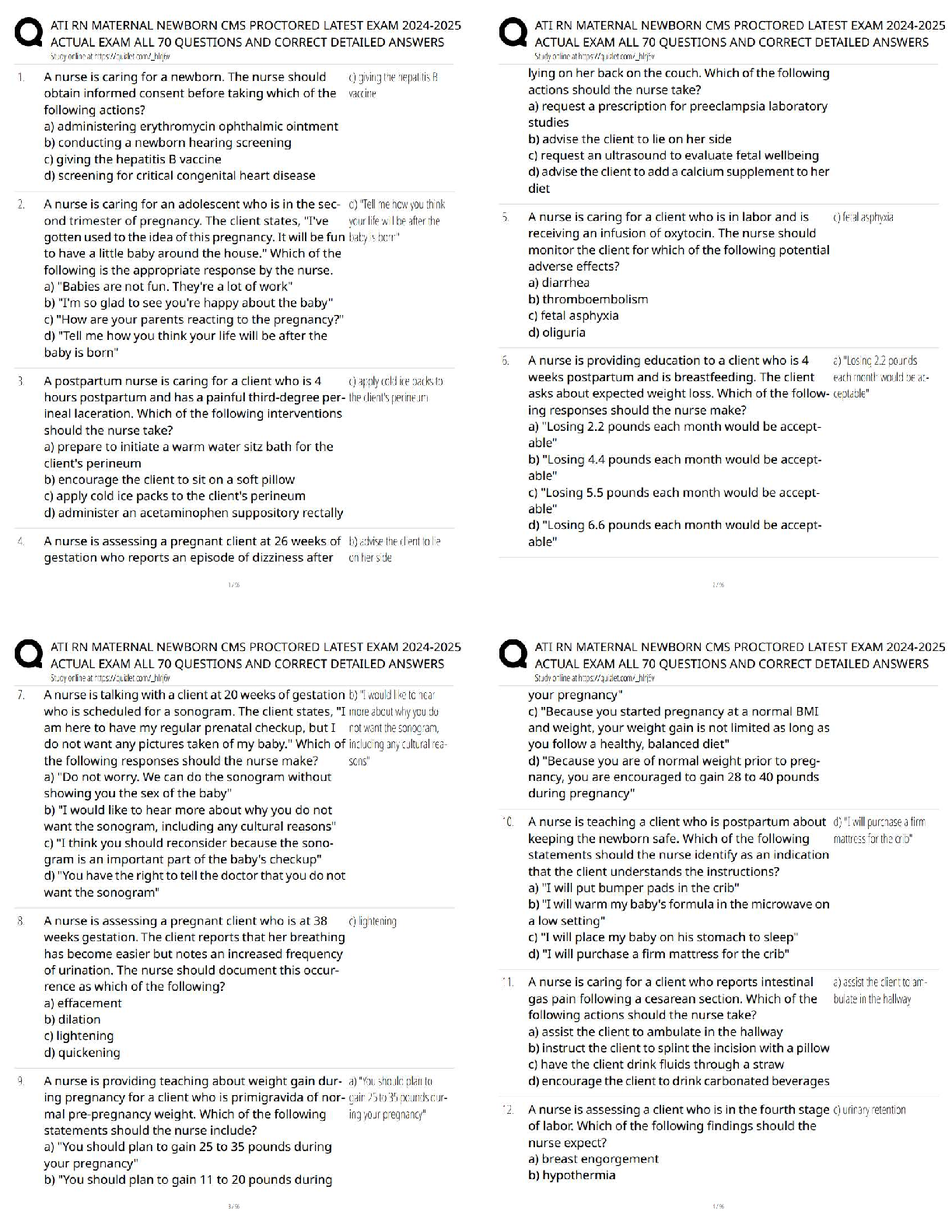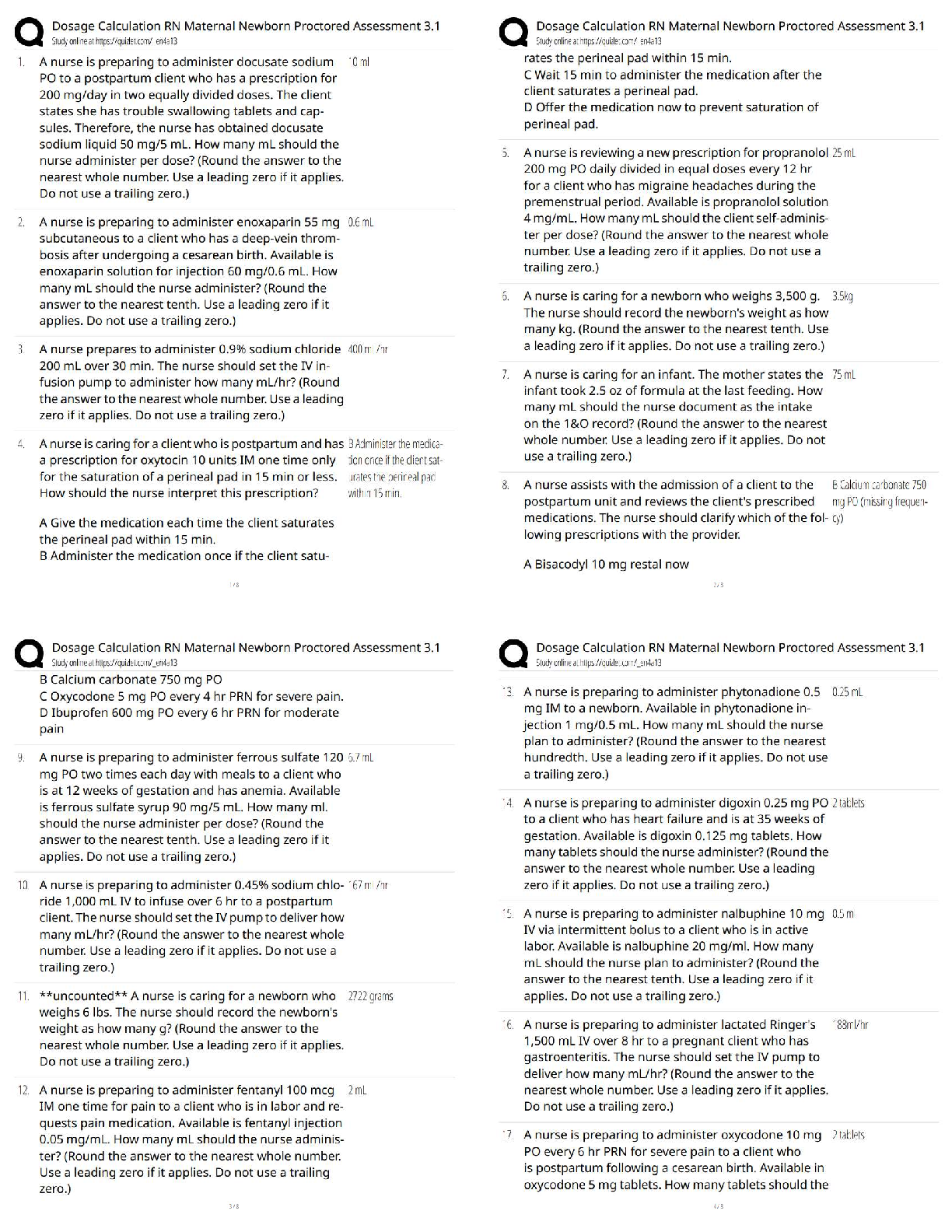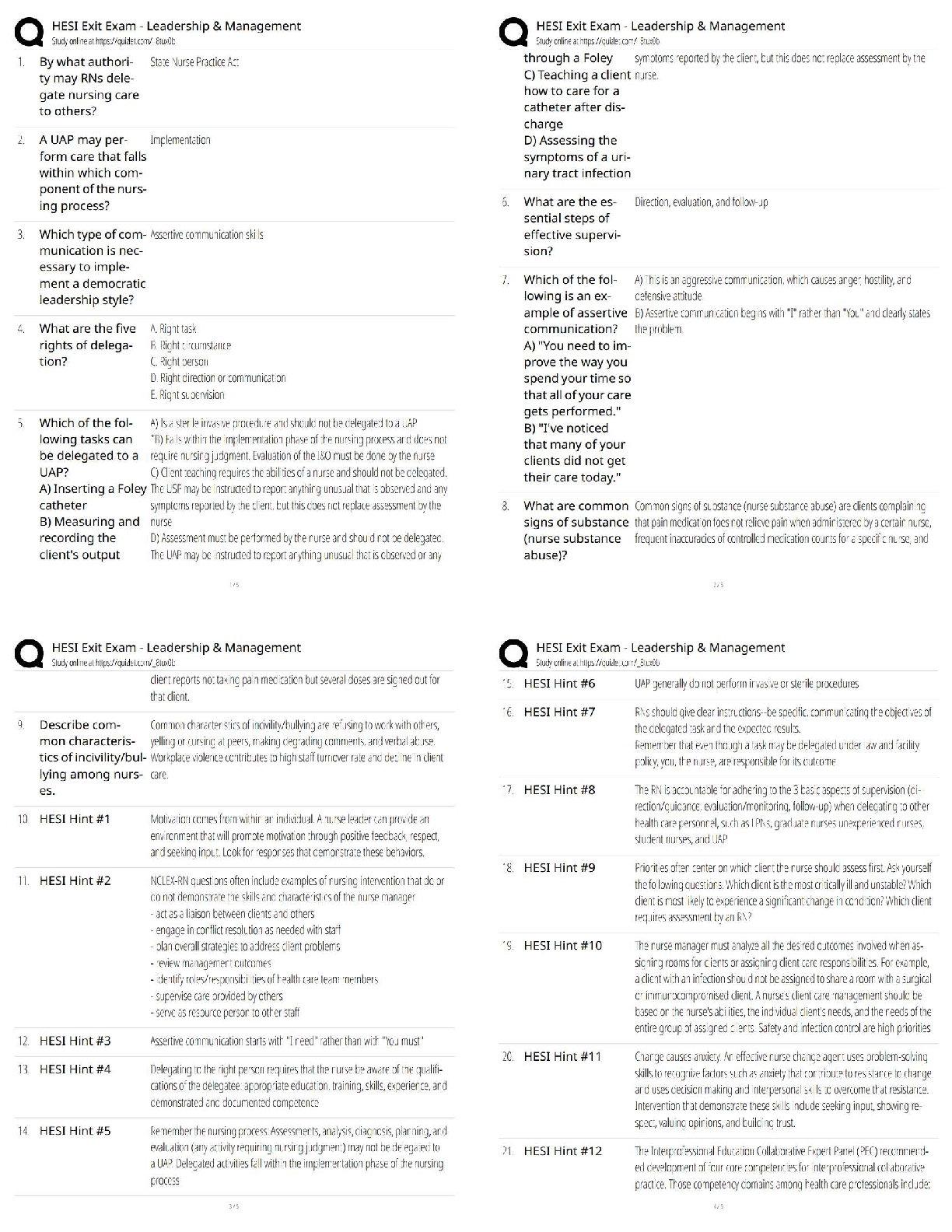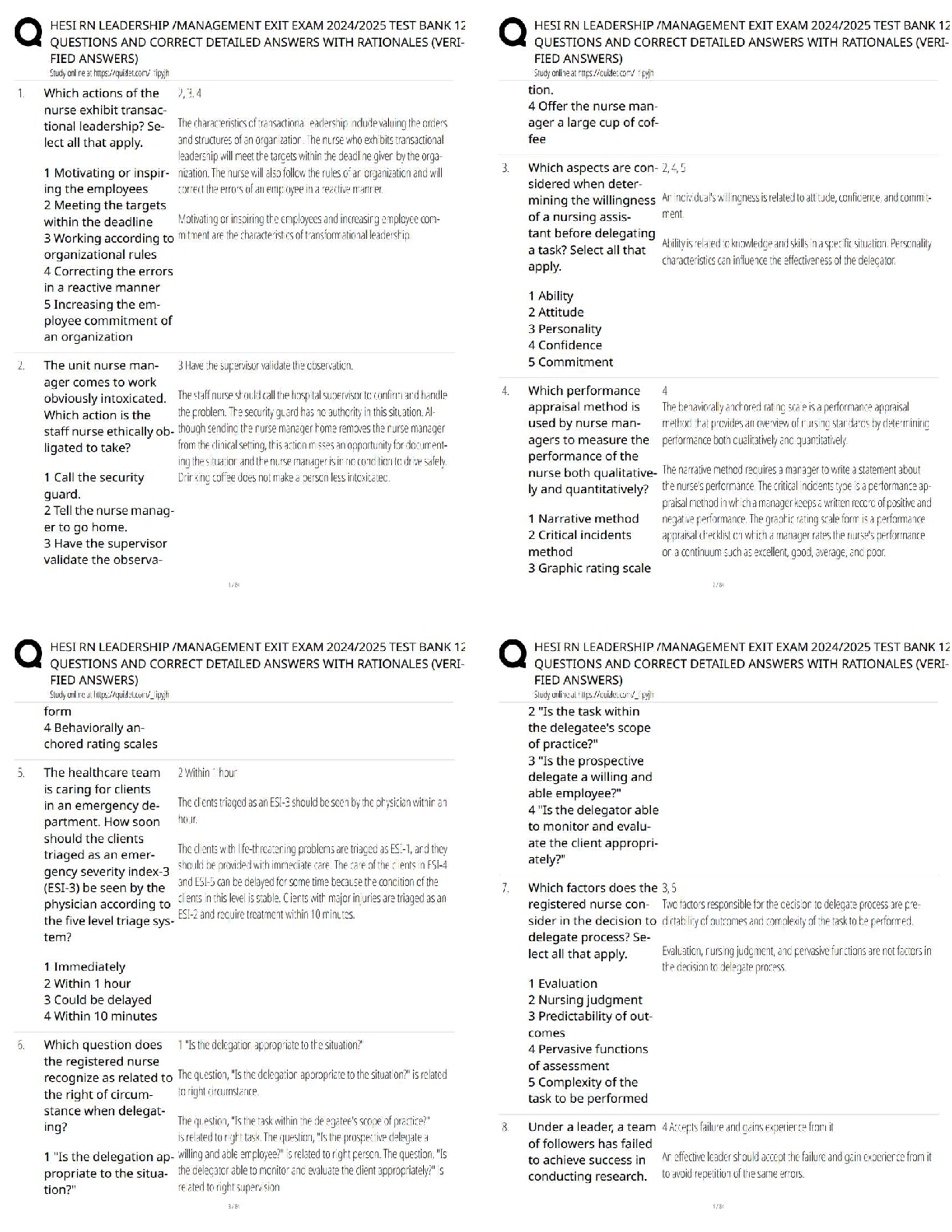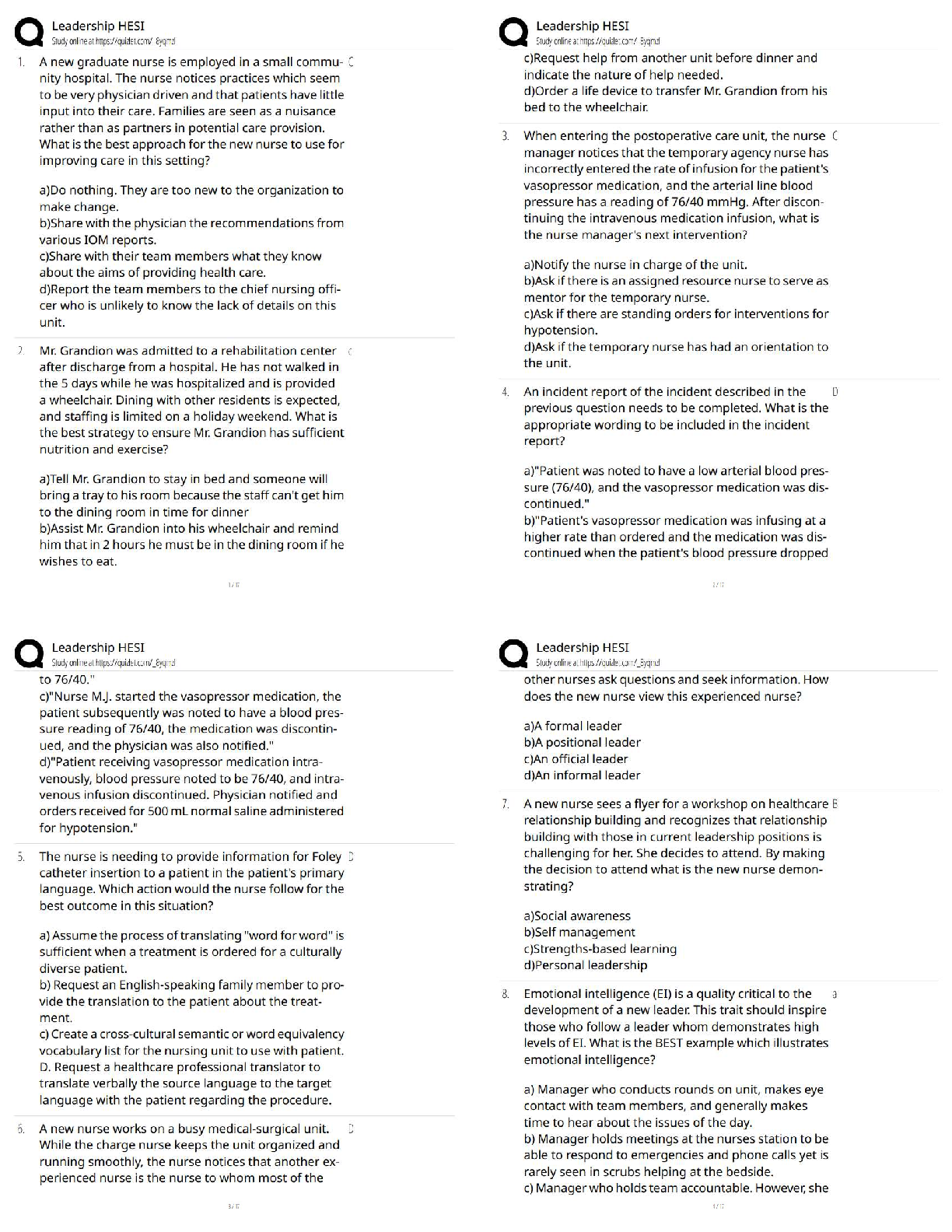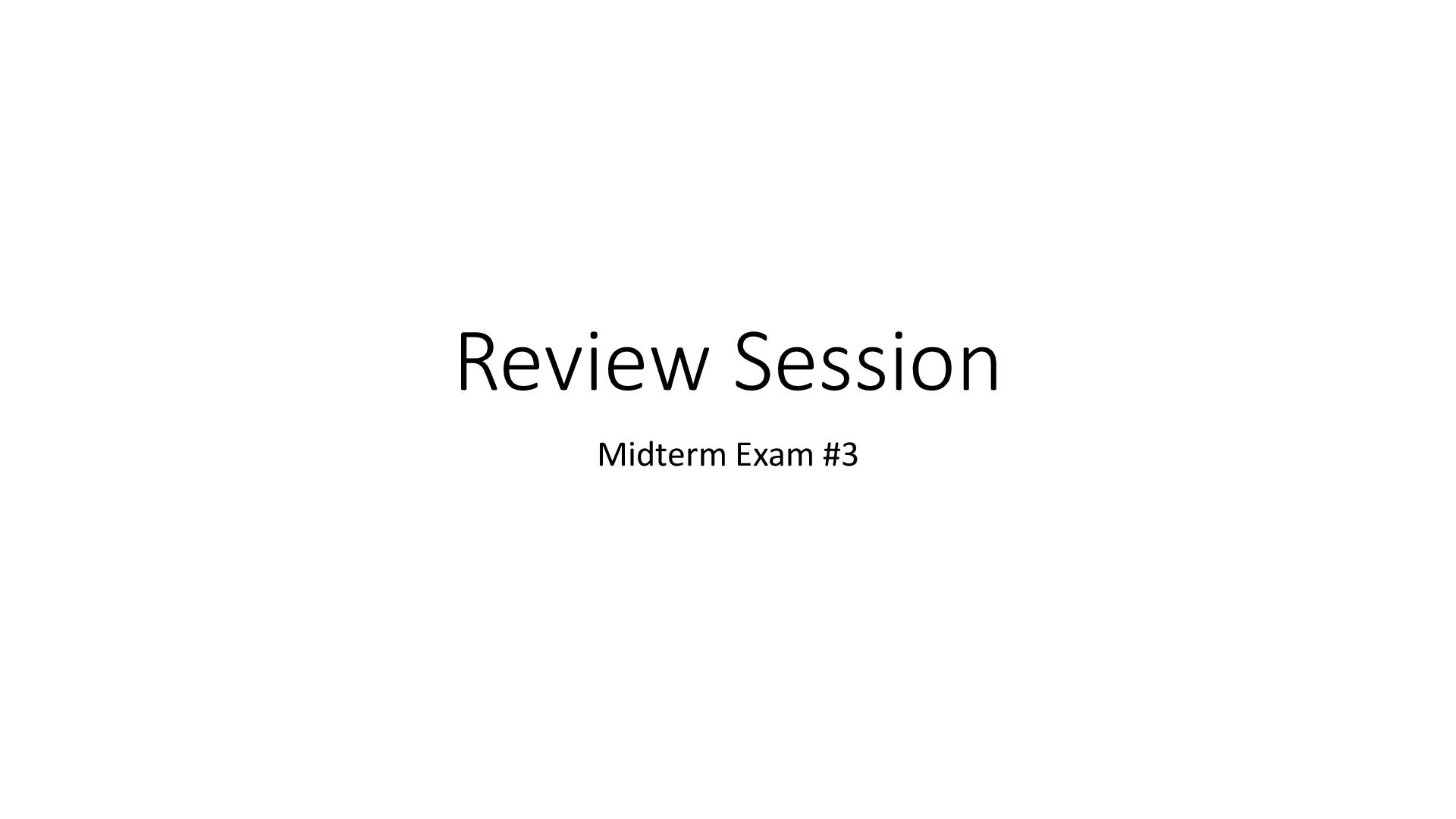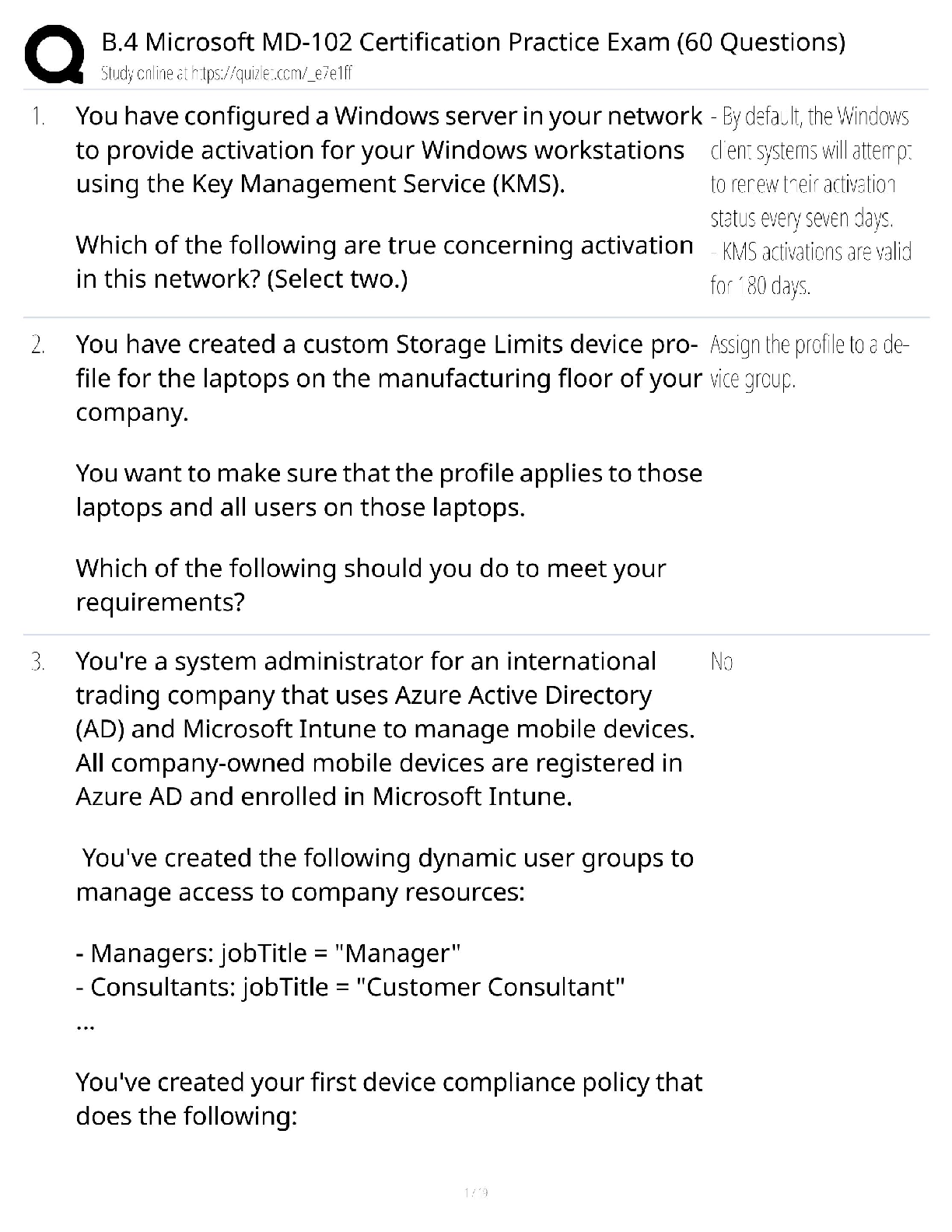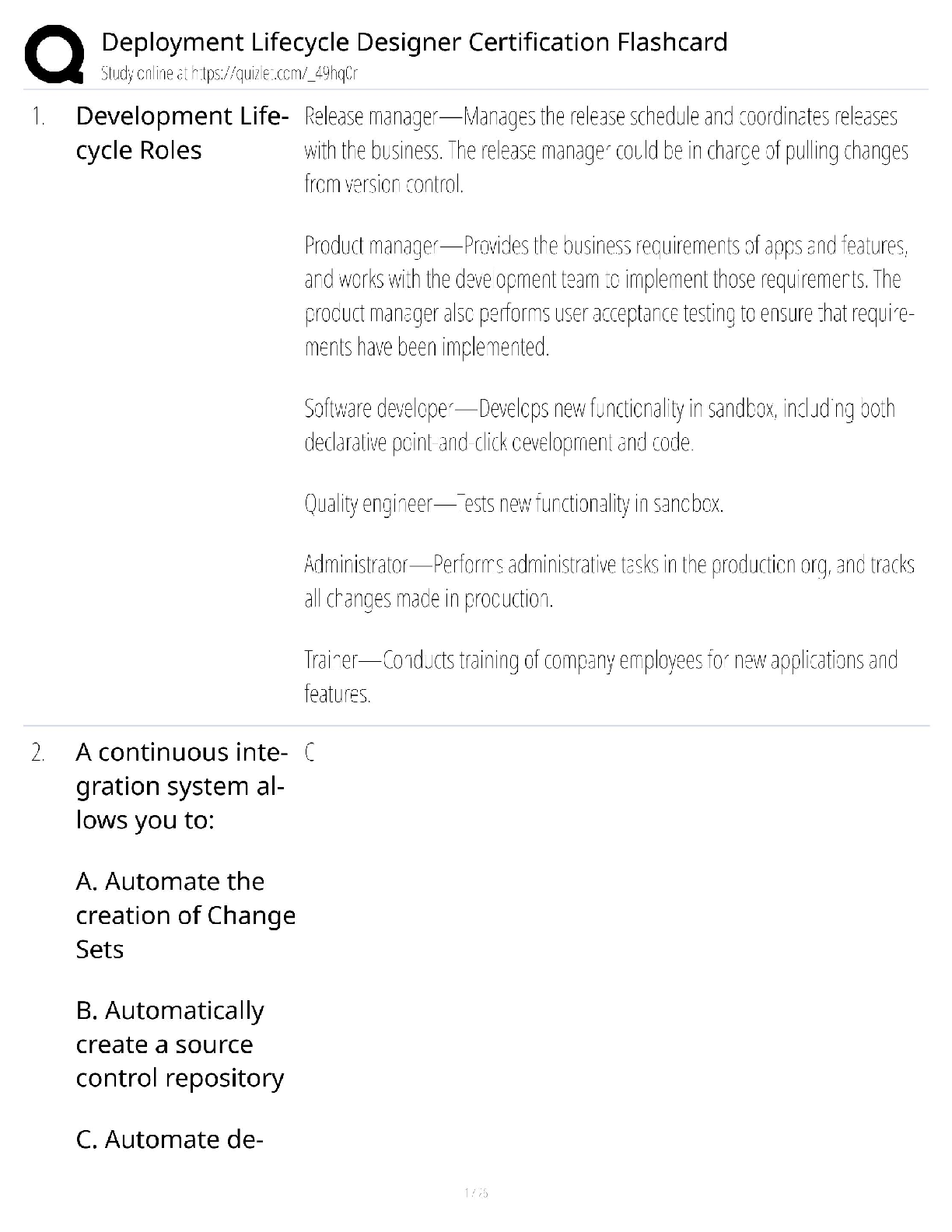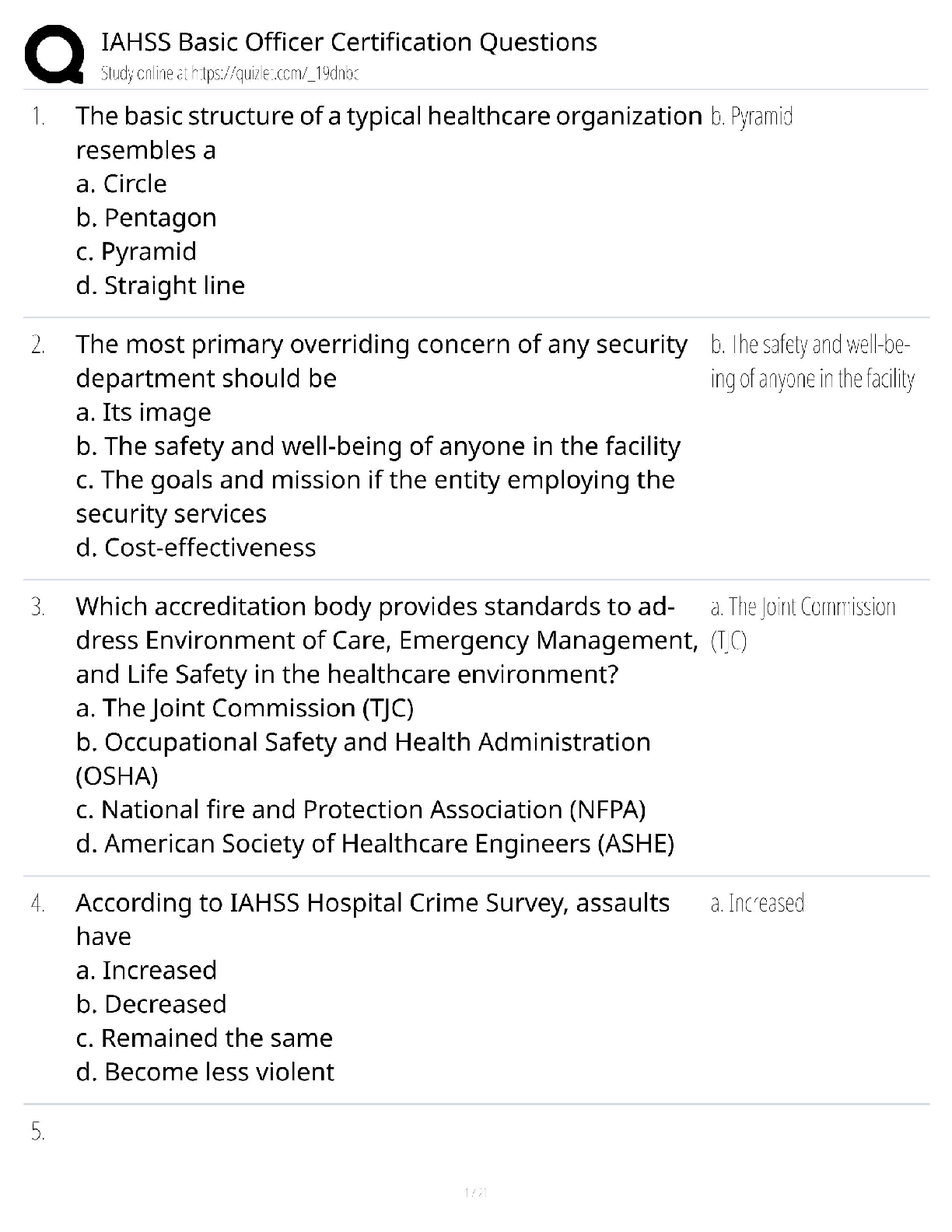History > QUESTIONS & ANSWERS > AP European History Exam Review Questions and Answers with Complete Solutions (All)
AP European History Exam Review Questions and Answers with Complete Solutions
Document Content and Description Below
AP European History Exam Review Questions and Answers with Complete Solutions Benvenuto Cellini ✔✔Goldsmith & sculptor who wrote an autobiography, famous for its arrogance and immodest self-pr ... aise. Condottiere ✔✔Mercenary soldier of a political ruler. Humanism ✔✔Recovery and study of classical authors & writings. Individualism ✔✔Emphasis on the unique & creative personally (personality?). New Monarchs ✔✔Term applied to Louis XI of France, Henry VII of England, and Ferdinand & Isabella of Spain, who strengthened their monarchical authority often by Machiavellian means. Rationalism ✔✔Application and use of reason in understanding and explaining events. Renaissance ✔✔The period from 1400 to 1600 that witnessed a transformation of cultural and intellectual values from primarily Christian to classical or secular ones. Secularism ✔✔Emphasis on the here and now rather than on the spiritual and otherworldly. Lorenzo Valla ✔✔(1407-1457) Humanist who used historical criticism to discredit an eighthcentury document giving the papacy jurisdiction over Western lands. Virtu ✔✔Striving for personal excellence. Baroque ✔✔The sensuous and dynamic style of art of the Counter Reformation. Brethren of the Common Life ✔✔Pious laypeople in sixteenth-century Holland who initiated a religious revival in their model of Christian living. John Calvin ✔✔(1509-1564) French theologian who established a theocracy in Geneva and is best known for his theory of predestination. Charles V ✔✔(1519-1556) Hapsburg dynastic ruler of the Holy Roman Empire and of extensive territories in Spain and the Netherlands. Council of Trent ✔✔The congress of learned Roman Catholic authorities that met intermittently from 1545 to 1563 to reform abusive church practices and reconcile with the Protestants. Index ✔✔A list of books that Catholics were forbidden to read. Indulgence ✔✔Papal pardon for remission of sins. Inquisition ✔✔Religious committee of six Roman cardinals that tried heretics and punished the guilty by imprisonment and execution. Jesuits ✔✔(Society of Jesus) Founded by Ignatius Loyola (1491-1556) as a teaching and missionary order to resist the spread of Protestantism. John Knox ✔✔(1505-1572) Calvinist leader in sixteenth-century Scotland. Martin Luther ✔✔(1483-1546) German theologian who challenged the church's practice of selling indulgences, a challenge that ultimately led to the destruction of the Roman Catholic world. Sir Thomas More ✔✔(1478-1535) Renaissance humanist and chancellor of England. Executed by Henry VIII for his unwillingness to publicly recognize his king as Supreme Head of the church and clergy of England. Nepotism ✔✔Practice of rewarding relatives with church positions. Peace of Augsburg ✔✔(1555) Document in which Charles V recognized Lutheranism as a legal religion in the Holy Roman Empire. The faith of the prince determined the religion of his subjects. Pluralism ✔✔The holding of several benefices (church offices). Simony ✔✔Selling of church offices Theocracy ✔✔A community, such as Calvin's Geneva, in which the state is subordinate to the church. Usury ✔✔Practice of lending money for interest. Gustavus Adolphus ✔✔(1594-1632) Swedish Lutheran who won victories for the German Protestants in the Thirty Years War and lost his life in one of the battles. Duke of Alva ✔✔(1508-1582) Military leader sent by Phillip to pacify the Low Countries. Armada ✔✔(1588) Spanish vessels defeated in the English Channel by an English fleet, thus preventing Philip II's invasion of England. Vasco de Balboa ✔✔First European to reach the Pacific Ocean (1513). Catherine de Medici ✔✔(1547-1589) The wife of Henry II (1547-1559) of France, who exercised political influence after the death of her husband and during the rule of her weak sons. Christopher Columbus ✔✔First European to sail to the West Indies (1492). Concordat of Bologna ✔✔(1516) Treaty under which the French Crown recognized the supremacy of the pope over a council and obtained the right to appoint all French bishops and abbots. Fernando Cortez ✔✔Conqueror of the Aztecs (1519-1521). Defenestration of Prague ✔✔The hurling, by Protestants, of Catholic officials from a castle window in Prague, setting off the Thirty Years' War. Bartholomew Diaz ✔✔First European to reach the southern tip of Africa (1487-1488). Dutch East India Company ✔✔Government-chartered joint-stock company that controlled the spice trade in the East Indies. Edict of Nantes ✔✔(1598) The edict of Henry IV that granted Huguenots the rights of public worship and religious toleration in France. Elizabeth I ✔✔(1558-1603) Protestant ruler of England who helped stabilize religious tensions by subordinating theological issues to political considerations. Prince Henry the Navigator ✔✔Sponser of voyages along West African coasts (1418). Henry IV ✔✔(1589-1610) Formerly Henry of Navarre. Ascended the French throne as a convert to Catholicism. Surrived St. Bartholomew Day, signed Edict of Nantes, quoted as saying, "Paris is worth a mass." [Show More]
Last updated: 3 years ago
Preview 1 out of 38 pages
.png)
Buy this document to get the full access instantly
Instant Download Access after purchase
Buy NowInstant download
We Accept:

Also available in bundle (1)
Click Below to Access Bundle(s)
.png)
AP European Bundled 2022 Exams with Complete Solution
AP European History Final Exam 2022 with complete solution AP European History Exam 2022 with complete solution Ap Euro Practice Exam Questions and Answers 2022 AP European History Exam Review For 202...
By Nutmegs 3 years ago
$20
22
Reviews( 0 )
$10.00
Can't find what you want? Try our AI powered Search
Document information
Connected school, study & course
About the document
Uploaded On
Sep 09, 2022
Number of pages
38
Written in
All
Additional information
This document has been written for:
Uploaded
Sep 09, 2022
Downloads
0
Views
160


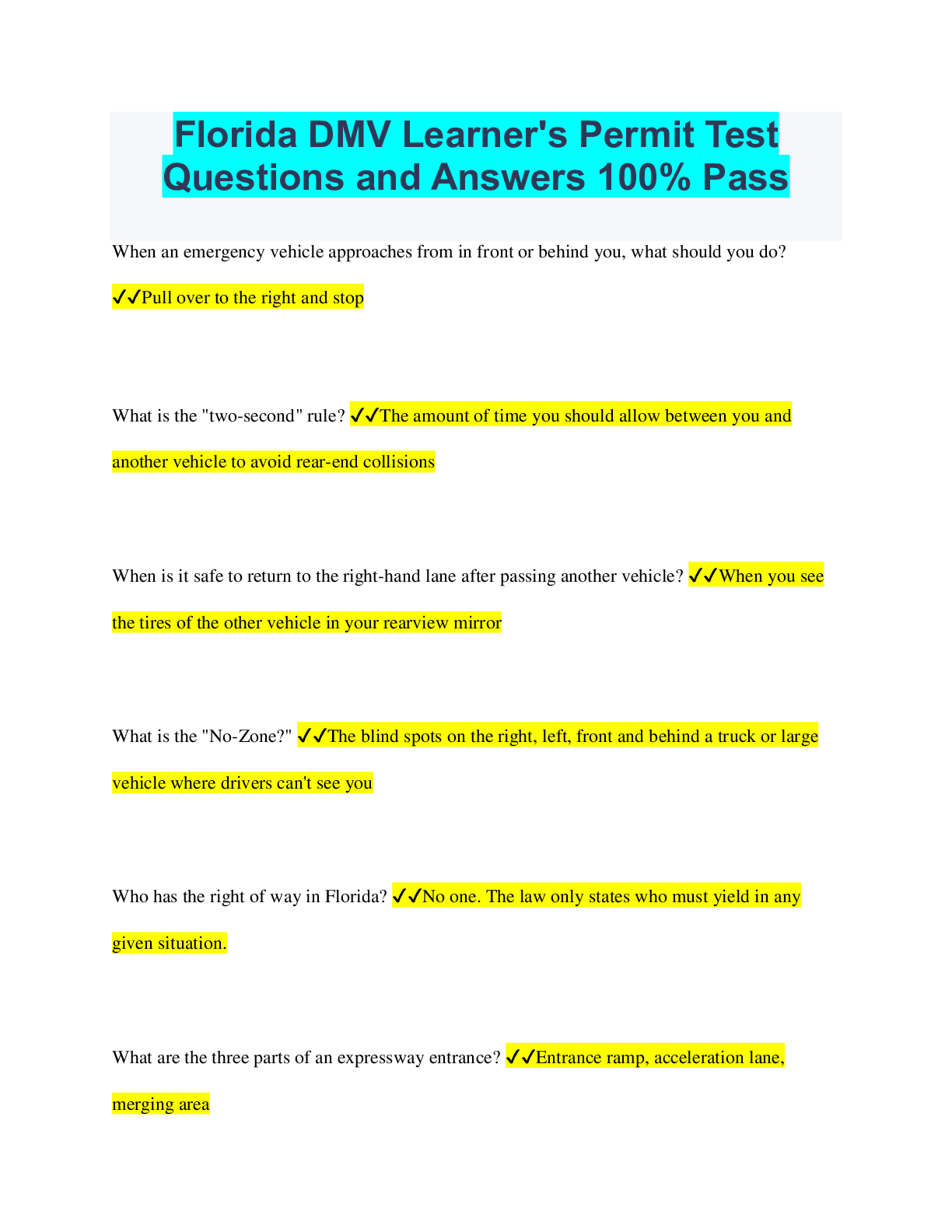
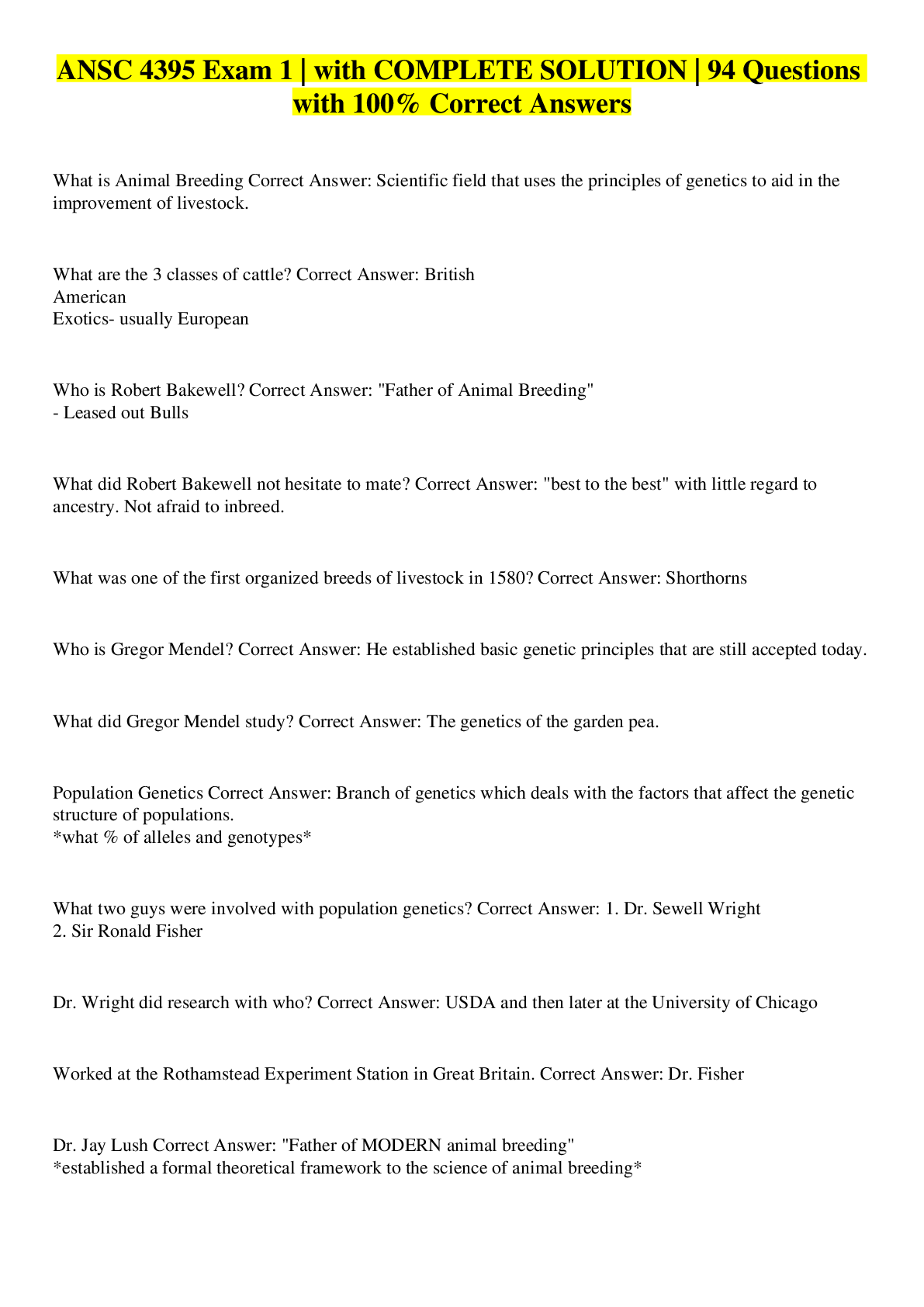

.png)

